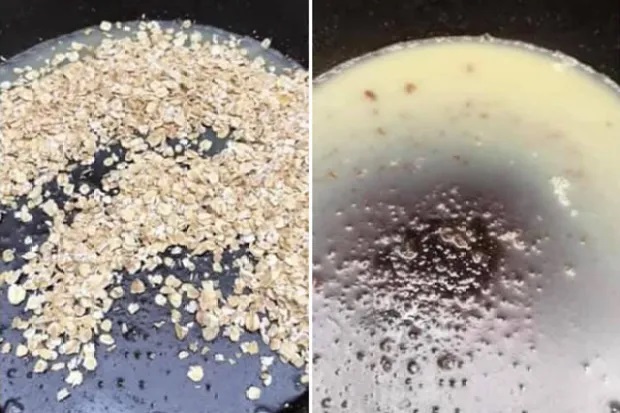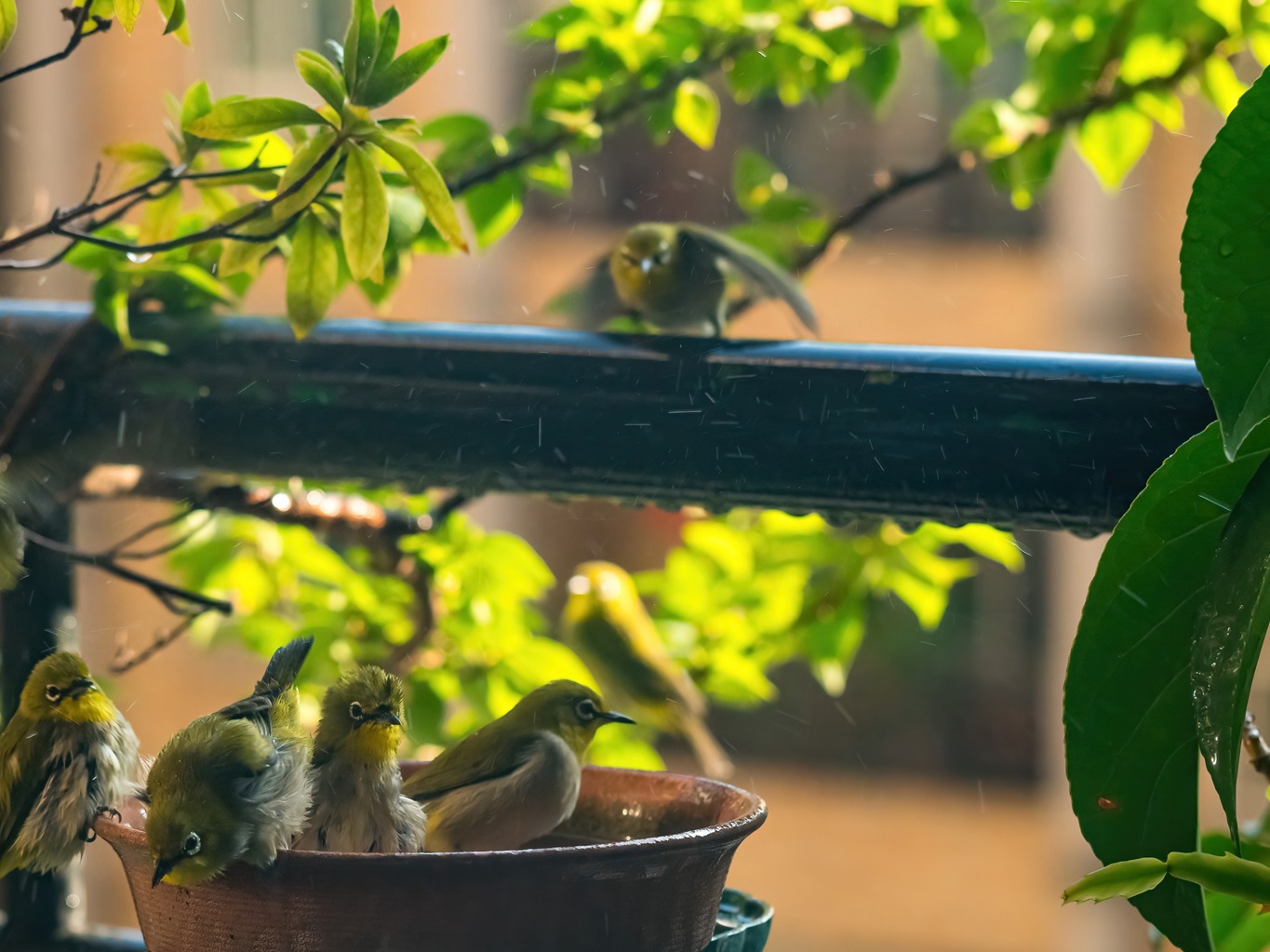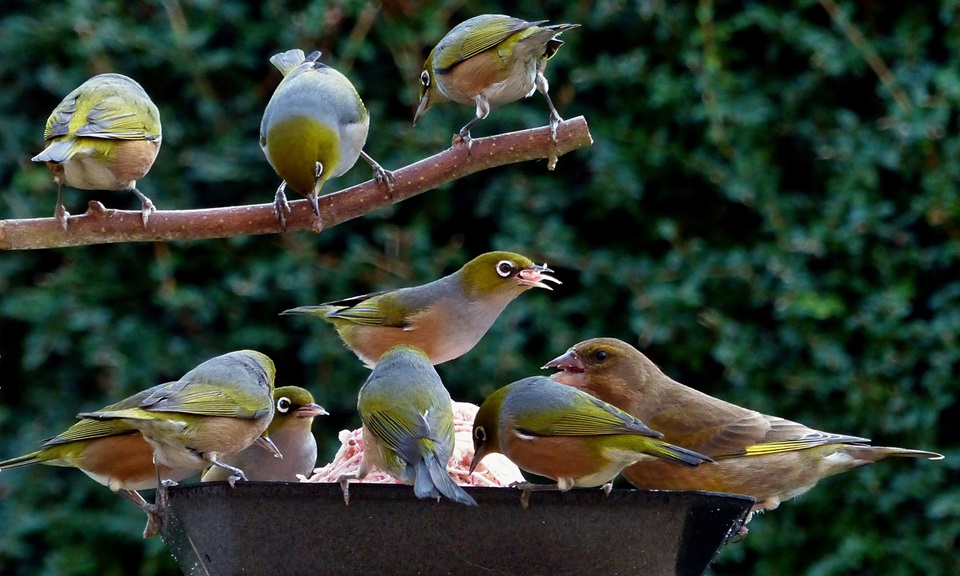I know we may have raised the gungy topic of how to get rid of grease, oil and fat before but keeping drains and sinks flowing is what we do. And if you can keep yours flowing, you won’t need our services, which I am sure you’ll be relieved about.
Dealing with leftover fats, oils, and grease in the kitchen can be challenging. There are some urban myths out there about how it’s OK to get rid of them down the sink, but don’t be tempted!
Instead read on for some sensible ways to dispose of cooking oil, grease and fat.
For the birds, but in a good way
Turn kitchen waste into a nutritious treat for our feathered friends.
While cruising Facebook, as you do, I came across what I thought was a very clever, creative, and eco-friendly way to get rid of fat and grease. So, I thought I’d share.
You can soak up excess grease by throwing rolled oats into your frying pan after you’ve finished cooking. It makes a delicious, nutritious treat for birds.
Throwing this on your lawn will attract a variety of birds for your viewing pleasure. Fats attract silvereyes and starlings in particular.
You can also feed it to your chooks, or ducks, as well! Birds are not vegetarians. They love meat and fat and the little waxeyes will love you for this feed over autumn and winter when their natural food sources have dwindled somewhat.


What not to do: the truths and myths of grease disposal
As plumbers, we feel it’s important to debunk the misconceptions about how to get rid of grease, fat and oil for the sake of your plumbing.
1. Using dishwashing liquid: Not good
You might be tempted to believe that using dishwashing liquid while pouring fats down the sink will break them up and allow them to pass through the pipes. However, this is only a temporary solution. As grease moves through the wastewater network, it eventually congeals and causes blockages. So, don’t do it.
2. Flush with hot water: Fiction
Running hot water with grease down the drain is also a misconception. While the hot water may move the grease further down your drains, the liquid grease will cool and solidify, coating the pipes and forming a blockage over time.
3. Down the waste disposal unit: Further fiction
Using a waste disposal unit might seem like a good idea. But believe us: it’s not. These units grind particles down before passing them into the wastewater system. The oil poured down can solidify further in the network, leading to build-ups and a potential plumbing pain in the neck.
Responsible grease disposal practices
Wiping dishes with kitchen towels
Before washing dishes, wipe plates and pans free of fat with a kitchen towel and chuck it in the rubbish. This significantly reduces the amount of fat and food going down the drain.
Contain them
The simple answer is to throw it in the rubbish. Use an old container, like an old yoghurt container or an empty jar for example, to allow fats and grease to sit, cool, and solidify. Then toss the container into the bin. Do not be tempted to pour hot oil into your bin, or container for that matter. It could melt the plastic and create an almighty mess. Also, use a container you can seal so that it doesn’t spill or smell.
I prefer to use old aluminium foil and a bowl. I simply line a bowl with foil and then pour the liquid grease or oil into it. If left out on the bench, the oil will solidify, and you can easily take the whole thing out and toss it in the bin. Cleanup will be a breeze: no greasy bowls or fingers. Of course, you need to make sure the foil doesn’t have any rips where the grease could escape.
Sitting on the bench, fats can go rancid and get pretty smelly fast. So, I usually throw the tin foil-wrapped grease into the freezer once it is solid. I put it in a bag with bones and meat scraps until rubbish day.
Composting small amounts
If you have small amounts of cooking oil and a compost heap, you can gradually add it. Being plant-based, cooking oil can be composted in low doses. However, you don’t want to put a whole fryer full of oil in your compost heap at once at once. Doing so will mess with the natural microbiomes. I would also avoid putting bacon grease in there. It will simply smell and taste too good to all manner of vermin, such as rats and possums.
Mixing with general wastes
For larger quantities that cannot be composted, you can also mix cooking oil with general wastes destined for your rubbish bin, such as cat litter or sawdust.
Sorting the bugs
Cooking oil can be used as a natural pest or spray for your garden or pot plants. Mix one cup of oil with a tablespoon of soap, cover the container and shake it until it has mixed. Then dilute a couple of teaspoons of the mixture with half a litre of water and transfer it into a spray bottle. Shake it again in a spray bottle, then spray it onto the affected plants.
Is it too late for your drain pipes?
Don’t put any cooking oil, especially animal fats and grease, down the drain. However, if you’re reading this while staring at water sitting in the sink and not going anywhere, you can unclog the drain yourself. Or, if your drain is slow from a buildup of oil over time, pour a quarter cup of baking soda into the drain and follow with a cup of vinegar. Once the fizzing dies down, flush with hot water.
If that doesn’t work, then you can call in the experts.
Call 027 265 4949 and we can check your drains and then unblock them to get them back to doing what they should: flowing stuff out. We can turn up with our CCTV cameras to diagnose exactly what and where the problem is. Then, if necessary, we can carry out hydrojetting. We use high-pressure water to unblock and clean underground drain pipes. This is a quick, economical, environmentally safe way to unblock your drains without digging up your entire lawn or garden. There will be no huge mess, nor any heavy chemicals used. Hydrojetting provides a long-term solution, provided you don’t pour the gunge down the drain the next time you have a hankering for deep-fried crispy chicken, bacon, lamb chops or hot chips.

